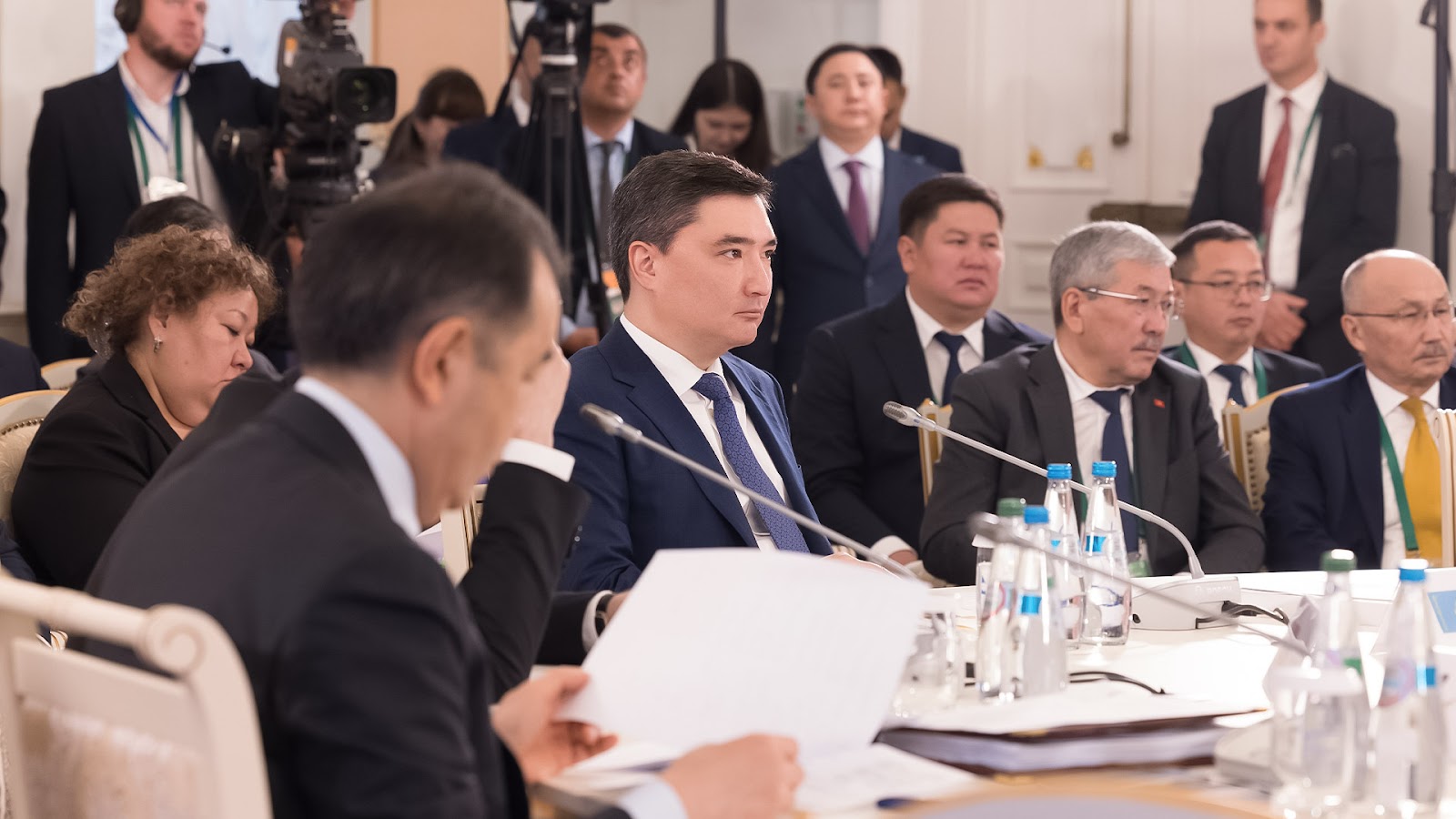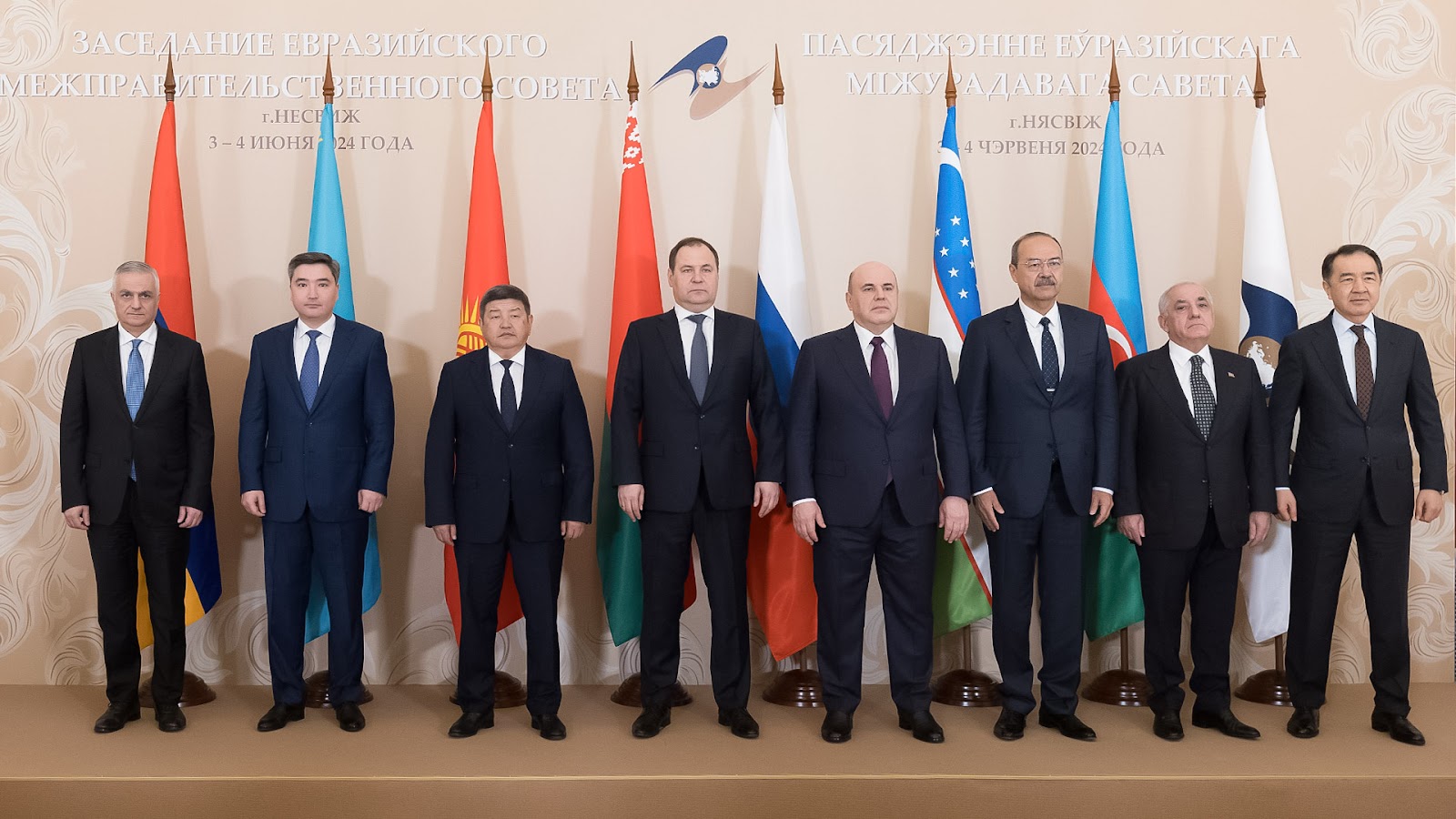ASTANA—Kazakhstan offers to act as a reliable logistics hub on the Eurasian transport corridors. Introducing new opportunities will boost transport and economic connectivity, reduce business costs and increase population mobility, said Kazakh Prime Minister Olzhas Bektenov at a meeting of the Eurasian Intergovernmental Council (EIC) in Nesvizh, Belarus, on June 3-4, reported the Prime Minister’s press service.

Kazakh Prime Minister Olzhas Bektenov at a meeting of the Eurasian Intergovernmental Council (EIC) in Nesvizh, Belarus on June 3-4. Photo credit: Prime Minister’s press service
The heads of government of the EAEU member states, including Belarus, Kyrgyz Republic, Russia, Armenia, the observer state Uzbekistan and the invited state of Azerbaijan, attended the meeting. The sides exchanged views on developing transport infrastructure, industrial cooperation, agriculture, customs and technical regulation, competition, and digitalization.
During the meeting, Bektenov noted the importance of improving transportation efficiency. He mentioned the success of Kazakhstan’s pilot project on railway transit automation, which reduced train processing times and automated transit declarations for good on the China-Central Asia and China-Europe routes.

The heads of government of the EAEU member states at the EIC meeting. Photo credit: Prime Minister’s press service.
“We need to quickly address issues at the internal borders of the EAEU partner countries. Kazakhstan has started eliminating bottlenecks by reconstructing railways on the Orsk-Kandyagash, Makat-Sagyz and Shalkar-Beineu routes. Construction of four sidings on the Makat-Shubarkudyk route has begun and existing tracks on the Mangystau-Beineu and three sidings on the Mangyshlak-Uzen are being extended,” said Bektenov.
According to Bektenov, sharing AI experiences could drive economic progress and innovation. Medicine, education, and creative industries are experiencing global transformation worldwide. Kazakhstan is not an exception and is seeing positive trends in digitalizing public and financial services, with non-cash payments reaching 88 percent by the end of 2023.
Kazakh PM also noted the urgency of the country’s public procurement of nuclear power plants. Bektenov proposed adjusting approaches to the national regime and setting price thresholds below the national regime in public procurement will not apply.
“At the last meeting of the heads of state, President Kassym-Jomart Tokayev noted the need for effective decisions to seize available opportunities. Today, the Commission and member countries are developing an action plan to implement provisions of the Declaration of Eurasian Economic Path,” said Bektenov.
“The EAEU is a market without customs borders with a population exceeding 185 million. Our decisions should primarily aim to improve the lives of our citizens. I am confident that further collaborative efforts will strengthen economic integration and create favorable conditions for the sustainable and stable development of our countries,” he added.
The EIC meeting coincided with the 10th anniversary of the Treaty on the EAEU.
